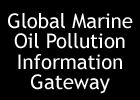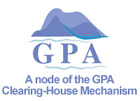|
|
|
Abidjan
Convention
With
the Convention for Co-operation in the Protection and Development
of the Marine and Coastal Environment of the West and Central
African Region (Abidjan
Convention), adopted in 1981 and in force 1984, the Contracting
Parties agree to take all appropriate measures to prevent, reduce,
combat and control pollution of the Convention area and to ensure
sound environmental management of natural resources using for
this purpose the best practicable means at their disposal, and
in accordance with their capabilities. There is one protocol
to the Convention: Protocol
concerning cooperation in combating pollution in cases of emergency,
adopted in 1981 and in force in 1984. • A
Regional Coordinating Unit (RCU) for the Convention has been
established, and is located in Abidjan. |
GEF
International Waters Projects
Benguela
Current Large Marine Ecosystem Programme The Benguela
Current is situated off the west coast of southern Africa encompassing
one of the four eastern boundary upwelling systems in the world.
It's high level of primary productivity supports an important
global reservoir of biodiversity and biomass of fish, crustaceans,
sea birds and marine mammals. The near shore and shelf sediments
hold rich deposits of diamonds, phosphorite and diatomite, as
well as reserves of oil and natural gas.
The
Benguela Current Large Marine Ecosystem (BCLME) Programme
is a multinational cross-sectoral initiative by Angola, Namibia
and South Africa to manage the living marine resources of
the Benguela Current LME in an integrated and sustainable
manner and to protect the marine environment. It is funded
by GEF (International Waters) and is implemented by UNDP.
The three member countries provide further financial and in-kind
contributions. The Programme focuses on a number of key sectors,
including fisheries, environmental variability, seabed mining,
oil and gas exploration and production, coastal zone management,
ecosystem health, socio-economics and governance. The Programme
is to run for five years (from 2002 to 2006). It will mainly
address transboundary issues in three key areas of activity;
the sustainable management and utilisation of living resources;
the assessment of environmental variability, ecosystem impacts
and improvement of predictability; and maintenance of ecosystem
health and management of pollution.
Development
and Protection of the Coastal and Marine Environment in Sub-Saharan
Africa:
The goal of the project is to assist sub-Saharan African countries
in achieving sustainable management of their coastal and marine
environment and resources. Specifically, the project will
- identify
areas, sites or living resources of regional and global
significance that are suffering measurable degradation;
- determine
the sources/causes of this degradation and the associated
scales of impact (national, regional and global);
- identify
areas, sites and resources of regional significance that,
although not currently degraded, are threatened with future
degradation;
- determine,
through root-cause analysis, the fundamental causes of damage
or threat posed; and
- design
a program of interventions addressing problems of regional
priority.
|
Gulf
of Guinea Large Marine Ecosystem Project
The
Gulf
of Guinea Large Marine Ecosystem Project is based on the
LME concept of marine environmental and resource management.
The concept is predicated on the fact that marine pollution
and living marine resources respect no political boundaries
and new geographical ones and, in effect, require a large-scale,
concerted and holistic approach for assessment and control.
Effective control of urban and industrial wastes is a major
target of the LME project, and co-treatment of both types of
wastes will form one of the demonstration schemes during the
project. The project provides a regional approach to address
the pollution of shared waters and associated degradation of
critical habitats and the natural resources found therein. |
African
Development Bank
The
African Development
Bank (ADB) is the premier financial development institution
of Africa, dedicated to combating poverty and improving the
lives of people of the continent and engaged in the task of
mobilising resources towards the economic and social progress
of its Regional Member Countries. The bank's Environment and
Sustainable Development Unit "is the focal point for addressing
and integrating the cross-cutting themes of environment, population,
gender, poverty reduction, NGO relations/local participation,
and institutional development into the bank's operations."
The bank's environmental
guidelines include coastal and marine resource management,
and fisheries. See also the country
environmental profiles for the bank's members. |
UN
Economic Commission for Africa
The
UN Economic Commission
for Africa (UNECA)is
the regional arm of the United Nations, mandated to support
the economic and social development of its 53 member States,
foster regional integration, and promote international cooperation
for Africa’s development. The Sustainable
Development Division (SDD) of UNECA plans and implements
a critical program to raise policy-makers’ awareness on
the urgency to integrate food, population and environmental
concerns in development planning and offers its member States
feasible solutions drawn from best practices within Africa and
around the world. The UNECA published the report State of the
Environment in Africa. |
UNEP
Regional Office for Africa
The major function of the UNEP
Regional Office for Africa (ROA) is to coordinate UNEP's
programme of work in the region. ROA acts as the link between
the various units and centers of UNEP and the countries in the
region, and promotes collaboration and partnerships with organizations
active in sustainable development in Africa. ROA provides a
wide range of advisory services using either UNEP staff or consultants
through an umbrella project known as Regional Advisory Services
(RAS). RAS advises on environmental machinery and technical
requirements, reviews project proposals, and recommends action
by governments and other organizations. ROA covers all 53 countries
of the continent. |

|
|


